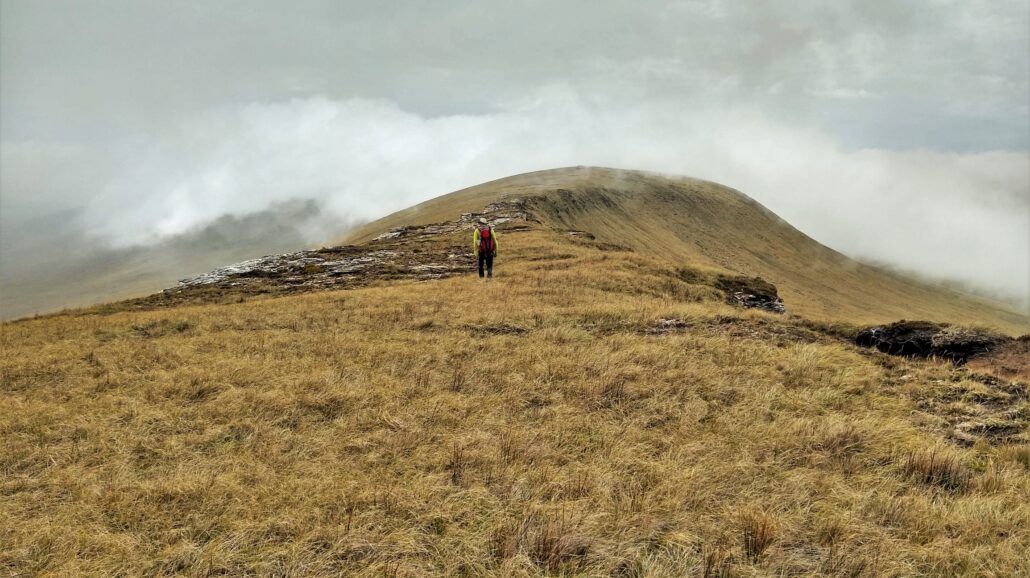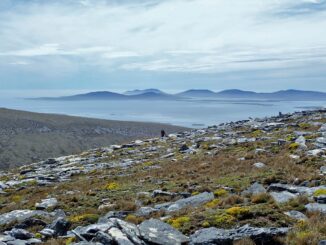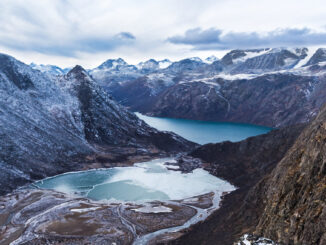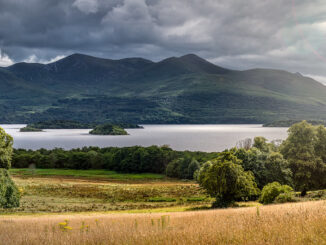
The Falkland Islands is moving forward with plans to set up its very first national park.
Yesterday, the government of the remote United Kingdom territory published a new draft policy paper outlining its plans to establish a national park on government-owned land in the Hill Cove Mountains of West Falkland. The plan is now open for public comment.
The public consultation period closes on April 7.
If approved, the new park will encompass an area of 11,833 hectares or 29,240 acres. Four prominent geologic features are slated to become main attractions at the new park, including “Mt Donald, Mt Adam, Rat Castle, and Mt Robinson,” according to a Falkland Islands Government Executive Council Order shared with Public Parks.
“The rugged mountainous terrain ranges in elevation from 100 meters to 700 meters above sea level,” says the government’s policy document in describing the scenery there. “It is a landscape of peaks, ridges, tarns, streams, and valleys.”
Protecting a new national park
The government proposes strict conservation measures and limits on how the natural heritage at the Hill Cove Mountains can be experienced and enjoyed by the public, “preserving a state as close to natural as possible,” the document says. The policy envisioned includes blanket bans on mining and mineral extraction of any sort and thorough environmental impact reviews for any infrastructure or development proposed for the park.
The unique and often endemic species found at the park will be strictly guarded, as well. The government says the Hill Cove Mountains are home to 103 native plant species, nine of them endemic. Three plant species found there have been deemed to be at risk for extinction by the International Union for Conservation of Nature.
Multiple species of birds and insects also call the future national park home. The public would be granted a “right to roam” the park in its entirety either on foot or horseback with appropriate conservation measures and rules put in place to protect wildlife and plants.
Some of the lands proposed for the new park encompass existing grazing areas where local farmers hold long-term sheep grazing leases. These will be maintained, the government said, mindful of the need to protect certain plant species. However, “new grazing leases will not be issued for the rest of the park, in order to conserve priority plant species and habitats,” the policy document proposes.
Everyone is invited to comment on the plan. The public comment period is not restricted to just the citizens of the self-governing Falkland Islands or UK citizens.
“You’ll be able to have your say on it, too, if you wish,” said Mike Jervois, the Falkland government’s biodiversity protection advisor.
Name to be determined
Though the document released Monday is titled “Hill Cove Mountains National Park: Policy & Management Plan” no official name for the park has been proposed. Rather, the government’s outline repeatedly references a proposed “national park in the Hill Cove Mountains.”
The document shows that the government has high hopes for the national park’s establishment. The policy paper says it is highly likely that this new park will become a draw for tourists venturing to this remote archipelago off the southeastern coast of South America. However, the Falkland Islands government expects visitation to be low at the start, with visitors comprised mainly of locals touring the park in the summer months.
“The mountains provide opportunities for tourism and outdoor recreation such as hiking, horse riding, photography, wildlife spotting, camping, off-road driving, picnics, and connecting with nature,” the government’s proposal says.
The new national park will be developed and managed mainly for day use, but there are plans to permit camping with strict rules governing when and how fires can be set. Open fires will be banned but visitors can use small cooking stoves in areas free of brush that could catch fire.
Lightly developed
The new park will be minimally developed at first. The policy document says there are no plans to facilitate vehicle access through the park. Rather, infrastructure will be put in place to facilitate walk-ins from a nearby public road. A parking area would be set up next to the official park boundaries, with signs and maps offering suggested walking routes.
The government also hopes to negotiate a deal that would let visitors park their vehicles on adjacent private land. Off-road driving would be restricted and only authorized via government permits.
The concept of establishing a national park in that corner of the Falkland Islands dates back to 2001. Jervois said the idea fell by the wayside for unclear reasons until the proposal was revived in earnest last year.
©2025 Public Parks
Park Info
Park Name:
Hill Cove Mountains
Location:
Falkland Islands
More information:



